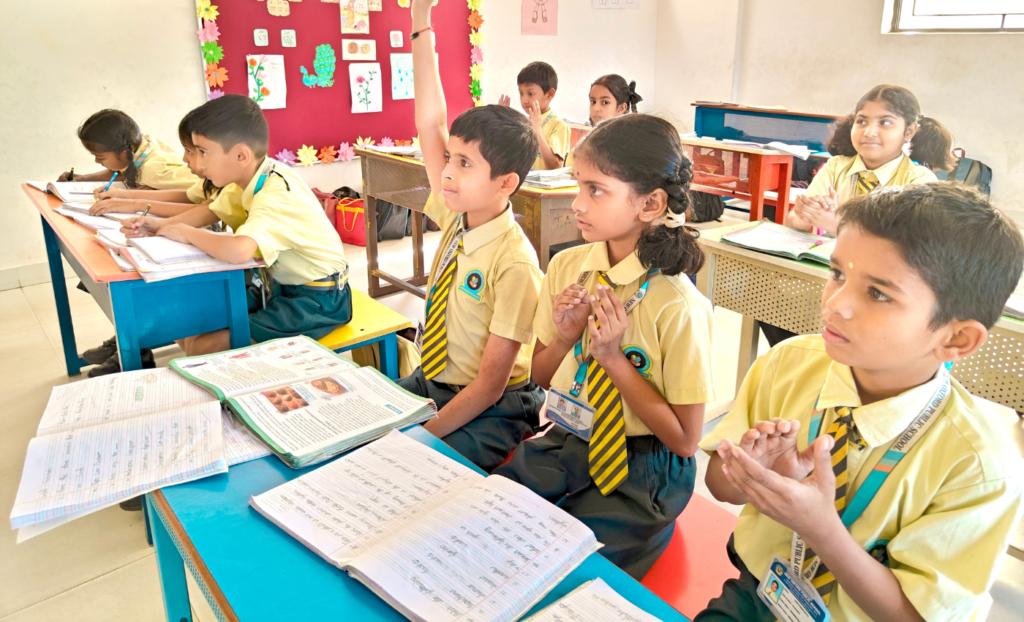As the world continues to evolve at an unprecedented rate, so too must our approaches to education. The 21st century has brought about a new set of challenges and opportunities, requiring a shift in how we think about teaching and learning. Traditional methods focused on memorization and passive learning no longer suffice in preparing students for a complex and rapidly changing world. Today’s education systems must emphasize experiential learning, creative thinking, and holistic growth to equip students with the skills they need to thrive.
Experiential Learning: Learning by Doing
In the 21st century, education is increasingly defined by experiential learning—an approach that emphasizes hands-on, real-world experiences as a vital part of the learning process. Instead of sitting in a classroom and passively absorbing information, students are now encouraged to learn by actively engaging with the material, participating in projects, and applying knowledge to solve real-life problems.
This can take many forms, from project-based learning where students collaborate to address a community issue, to internships and fieldwork where they gain firsthand experience in their areas of interest. Technology also plays a role in experiential learning, offering virtual labs, online simulations, and opportunities for global collaboration that break down the barriers of traditional classrooms.
For example, students studying environmental science may work on a local sustainability project, collecting data and analyzing real-world environmental challenges. This experiential approach not only deepens understanding but also makes learning more relevant and motivating.
Creative Thinking: Unlocking Innovation and Problem-Solving
As we face new global challenges, from climate change to technological disruption, creative thinking has become one of the most essential skills for the future. The 21st-century education system places a strong emphasis on fostering creativity, helping students to think outside the box, explore new possibilities, and solve problems in innovative ways.
In today’s schools, students are encouraged to approach problems from multiple perspectives, using creative problem-solving strategies. Whether it’s through interdisciplinary learning, where subjects like science, technology, and the arts are combined, or through design thinking methodologies, creativity is woven into the fabric of the learning experience. For instance, a project involving the creation of a sustainable product might require students to apply engineering principles, artistic design, and marketing strategies.
Additionally, creative thinking is often nurtured through environments that encourage risk-taking, experimentation, and the exploration of new ideas. Students learn to see failure as a learning opportunity rather than a setback, which is key to developing resilience and adaptability in an ever-changing world.
Holistic Growth: Educating the Whole Person
21st-century education is increasingly focused on developing the whole person—intellectually, emotionally, socially, and physically. Holistic education goes beyond academic achievements and seeks to nurture well-rounded individuals who are capable of thriving in all areas of life.
One of the key aspects of holistic growth is social-emotional learning (SEL), which helps students develop self-awareness, empathy, and interpersonal skills. SEL programs teach students how to manage their emotions, build healthy relationships, and make responsible decisions—skills that are crucial for success in both personal and professional life. By integrating SEL into the curriculum, schools can help students build emotional intelligence, which is shown to have a direct impact on academic performance and overall well-being.
Physical education and mindfulness practices also play an important role in holistic development. Schools today recognize the importance of mental and physical health, providing students with tools to reduce stress, improve focus, and maintain a healthy lifestyle. The integration of physical fitness, mindfulness exercises, and activities that promote overall wellness help students manage their energy and emotions, ultimately supporting their academic success and personal growth.
Enhancing Curiosity: Cultivating a Lifelong Love of Learning
Curiosity is the cornerstone of all great learning, and in the 21st century, education is designed to ignite and sustain that curiosity. Rather than focusing solely on covering content, educators now prioritize cultivating a mindset of lifelong learning. Students are encouraged to ask questions, seek new knowledge, and remain open to discovery throughout their lives.
This curiosity-driven approach is supported by project-based learning, which allows students to explore topics that interest them in depth, often leading to self-driven research and inquiry. Furthermore, interdisciplinary projects help students make connections between subjects, which not only deepens their understanding but also sparks their interest in exploring new areas of study.
Technology has greatly enhanced students’ ability to explore new ideas and connect with the global community. Online resources, digital tools, and social media platforms open up vast worlds of information and perspectives, encouraging students to become self-directed learners and critical thinkers.
Preparing Students for a Complex World
As we navigate an increasingly complex world, the education system must evolve to meet the needs of the future. The emphasis on experiential learning, creative thinking, holistic development, and enhancing curiosity equips students with the essential skills to thrive in a global, technology-driven society. By fostering a love for learning, promoting innovation, and nurturing the growth of the whole person, we ensure that students are not only prepared for the workforce but also for the challenges and opportunities that lie ahead.
In the 21st century, education is not just about imparting knowledge—it’s about empowering students to think critically, act creatively, and grow into well-rounded individuals who are ready to make meaningful contributions to the world.
By,
Sneha Rao
New Oxford Public School



